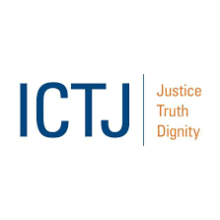An Evaluation Lens for Transitional Justice
When transitional justice processes are discussed, from those in Sierra Leone to South Africa, and Nepal to Argentina, there is a lively debate regarding what results have been achieved, whether the process has “succeeded” or not and on what grounds different claims are made. Results are at times resounding and inspiring, changing the lives of people at massive scale, but unlike the situation of practitioners in the medical sciences, for example, the evidence base regarding transitional justice approaches is noisier and more complicated and normally includes a long list of considerations related to context and other characteristics of the application.
This post is part of a larger conversation through which ICTJ aims to contribute to developing better monitoring and evaluation practices to support an evidence-based approach to transitional justice processes and interventions. In the past months, ICTJ has conducted a desk review of the topic, followed by a series of semi-structured interviews with members of three stakeholder groups: academics, practitioners, and donors. ICTJ hosted a series of events, supported by the Knowledge Management Fund, to discuss our findings with peers. We are sharing here the main takeaways and recommendations from those discussions.

